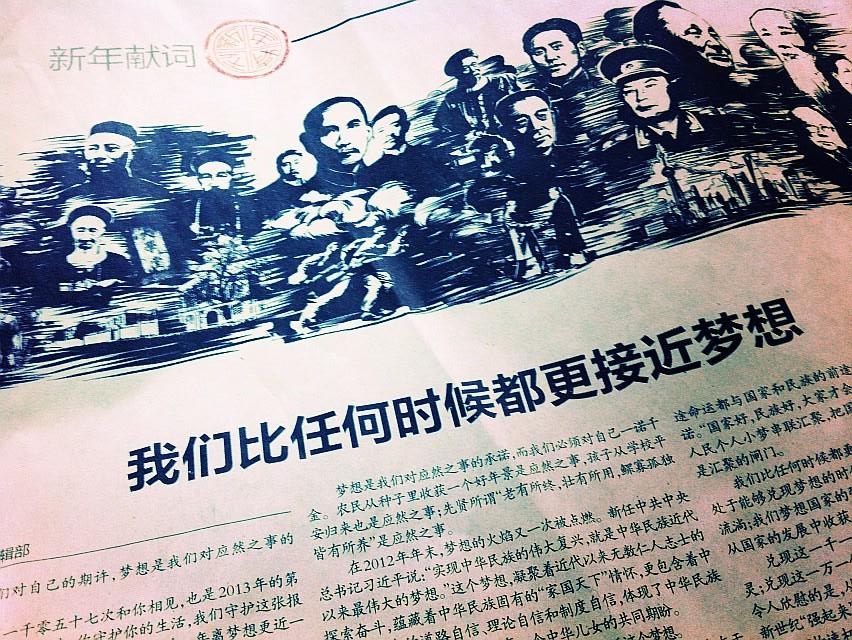Correction: Southern Weekend (南方周末) has adopted the English name Southern Weekly. This post has been changed to reflect the official title of the paper.

“We Are Closer to Our Dream Than Ever Before.” Journalists are pointing fingers at Guangdong Propaganda Department Head Tuo Zhen for turning a call for constitutionalism into a paean to the status quo.
Southern Weekly’s annual New Year’s greeting was utterly mangled this year. A rousing argument for China’s “dream of constitutionalism” was excised by the censors, and it seems that the new head of Guangdong’s Propaganda Department, former Xinhua News Agency Deputy Head Tuo Zhen, held the knife himself. Now three versions of the editorial are available online, including the original, a draft checked by the censors, and the final version attributed to Tuo. China Media Project has an in-depth look at the emerging story.
The text of the original, uncensored editorial is available from CDT Chinese here [zh].
As of January 3, the following search terms are blocked on Sina Weibo (not including the “search for user” function):
– Tuo Zhen (庹震)
– Lump Zhen (坨震): “Lump” (坨 tuó) sounds like Tuo (庹 Tuǒ).
– measure (尺度): These two characters “spell” out Tuo (庹): the first character in “measure” (尺) is a component of Tuo’s surname, while the second character (度) includes some of the same component parts as Tuo. “Measure” also implies the “scale of censorship” (审查尺度) imposed by Tuo. He has, in fact, earned the online nickname “Minister of Measure” (尺度部长).
– China dream + dream of constitutionalism (中国梦+宪政梦): The title of the original article was “China’s Dream, the Dream of Constitutionalism.”
– Guangdong + Propaganda Department (广东+宣传部)
– Southern Weekly + New Year’s greeting (南方周末+新年献词)
– Nan Zhou + New Year’s greeting (南周+新年献词): “Nan Zhou” is an abbreviation for Southern Weekly (南方周末 Nánfāng Zhōumò).
– minister (部长): e.g. Minister Tuo. Re-tested.
All Chinese-language words are tested using simplified characters. The same terms in traditional characters occasionally return different results.
Browse all of CDT’s collected sensitive words in this bilingual Google spreadsheet.
CDT Chinese runs a project that crowd-sources filtered keywords on Sina Weibo search. CDT independently tests the keywords before posting them, but some searches later become accessible again. We welcome readers to contribute to this project so that we can include the most up-to-date information. To add words, check out the form at the bottom of CDT Chinese’s latest sensitive words post.








